

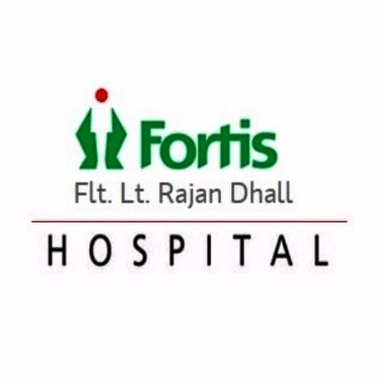
Fortis Flt. Lt. Rajan Dhall Hospital - Vasant Kunj (on call)
Multi-speciality Clinic (Gynaecologist, Ophthalmologist & more)
About Clinic
About Us Fortis Flt. Lt. Rajan Dhall Hospital, Vasant Kunj, New Delhi, is a 200 bed NABH certified multi-speciality tertiary care hospital. Spread over 1,50,000 sq. ft, it is a manifest...read more
Clinic Timing
Clinic Location
Clinic Images
Videos
Hi!
I am Dr. Rashmi Sharma. I am dermatologist practicing in Vasant Kunj. So today I am going to talk about a very common aesthetic procedure which is chemical peel. If you look into history, Egyptians were the first people to use chemical agents as peels. In fact, interesting Cleopatra used to bathe with sour milk which contains alpha hydroxy acid, which we now use in the peels as well. So, what are chemical peels? Chemical peels are nothing but chemical agents which are applied all over the skin which leads to controlled exfoliation of the skin. So, the chemical peel can be of the various types depending upon the depth of the penetration. So, it can be 4 types it can be: very superficial, superficial, medium and deep peel. So, very superficial peel penetrate up to the level of stratum corneum which is the uppermost layer of the skin. Superficial peel that penetrates all of the epidermal skin, it goes up to the basal layer of the skin. Medium depth peel goes up to papillary dermis and deeper peels they go up to the level of the reticular dermis. So also, you'd like to know what are the various indications to do the peels.
So various indications for which we to the peels would be like acne, active acne or acne marks which is present over the skin or it could be done for melasma where you get like pigmentation on the cheeks, on the forehead or it's it can be done for various pigmentation spot pigmentation kind of thing. Interestingly it is also done to get a glow on the skin or for the fresh rejuvenated skin. For the fine lines or wrinkles which you develop for that also we can do the peels. So, peels can be of various types, it can be either a glycolic peel or a salicylic peel or a pyruvic acid peel, mandelic acid peel a combination peel which contains like a lot of lightening agents like kojic acid, pyruvic acid, mandelic acid all these are combined together and they lead to a reduction of the pigmentation. It can also be done for pigmentary demarcation lines also. So, what are the various precaution which you do before doing the peel?
So, before the peel, your dermatologist will ask you to apply various like priming agents which is done to enhance the effect of the peel. Sunscreen is also a very integral part of the pre and post peel care. After doing the peel once the peel is done, it's applied all over the face and it's you do various things to enhance the effect and to decrease the pigmentation. So, what you do is like you start the doctor will instruct you to apply sunscreen. So, apply a good sunscreen as per your skin type is very important and the repetition is also very important. So, you know you have to ideally apply your sunscreen at least 3 times daily. So maybe you can do it at 8 o'clock, 11 o'clock and 2 o'clock which is the ideal interval at which you can apply the sunscreen. Also, moisturization is a very important part of the post care during the peel. You have to intensely moisturize the skin because your skin tends to be a little dry because it exfoliates because of the chemical peel which is done. So regular frequently you just moisturize the skin. Night care is also very important. Choosing the right face wash is very important. One important thing I would like to mention does not peel your skin yourself, you know just let it fall on its own and keep moisturizing your skin. So nowadays the peel can also be combined with various other procedure like you can do it with microdermabrasion or with a micro-needling RF. In fact, the sequential peel can also be done where the peel is done one after the another. So, this is all about the peel. I hope you found this video useful.
Thank you.
Hi everyone,
I am Dr. Rashmi Sharma. I am consultant dermatologist. So today I will talk about laser hair reduction. There is a reason we call it as laser hair reduction because there is no 100% suggestion of the hair but there is about 60 to 80% reduction in the number of the hair follicle. So what is the principle of a laser hair reduction? So when a laser beam strikes the hair follicle which is right beneath the surface of the skin it is taken up by the pigment forming cells or the melanin and with the series of laser session, there is destruction of the hair follicle. So now I will talk about various factors affecting the laser hair reduction. It depends upon the type of the laser and the parameters used. It also depends upon the hair colour and the skin type. It depends upon the stage of the hair. It also depends upon the hormonal profile of the patient and the site where it is being performed. So, the type of the laser which is approved by the US FDA is a diode laser or ND: YAG laser.
So nowadays you get there are recent advances and the recent advent of laser you get a recent diode laser which makes this relatively painless. Also the parameters depends upon are very important in the laser hair reduction. It also depends upon the hair colour and the skin type. So a person who has a fairer skin type and a darker hair respond better compared to a darker individual with a thinner hair and a lighter hair. So because in the fairer skin type we can give a more flounce to the patient. It also depends upon the stage of the hair. So at any given time hair can be either in a growing phase or anagen phase, telogen or a catagen phase which is shedding off phase of the hair. So if it is in a because the laser hair as you know the beam strikes the hair follicle which is present in the anagen because the pigment is only present in the anagen phase. Thus the reason we need so many sessions to get the successive laser hair reduction.
Also it depends upon the hormonal profile of the patient. You'd see many individual with a lot of hair on the facial area and a lot of pigmentation and with the irregular menstrual cycle, obese obese physique and also they have they can have a diabetic association and multiple cysts in the ovary which we call as polycystic ovarian syndrome. So before performing a laser in such individual, we need to get the hormonal profile done for them because if the hormonal profile are not normal then we all the aspects need proper treatment for the best result by the laser hair reduction.
It also depends upon the site where the laser is being performed. So if you do a laser hair reduction on a axillar area or a underarms area and a bikini area; those area respond better compared to the leg and the chest area. Also you give some instructions to the patient after the laser hair reduction. We ask them to avoid sun exposure and we also ask them to the sunscreen is advocated in all the patients after the laser hair reduction. Immediately after the laser you can get some little redness and a bumpy swelling on the face which is normal and it becomes ok after 3 to 4 hours and the icing also relieves it. We when you are getting the laser hair reduction we ask you not to go for any kind of plucking or threading process or any kind of bleaching. We ask you to only shave off the hair whenever it's needed and yeah. Also the duration between the two laser sessions varies from 4 weeks to 6 weeks.
So when we start we take a interval of 4 weeks, slowly the hair growth decreases so you can prolong it up to 6 weeks. The side effect of the laser hair reduction are absolutely null now because now with the recent advances and the recent laser you the burning and pigmentation chances are relatively less. So this is all about laser hair reduction. I hope you found this video useful.
Thank you.
Hello, everyone, I am Dr. Rashmi Sharma I am a Dermatologist practising in Vasant Kunj New Delhi. Today I am going to talk upon the technology called is PRP. So what is PRP? PRP is nothing but platelet-rich plasma or platelet concentrate in plasma, which is utilised for its growth factors. So the interesting fact about PRP is that it is already been there for several years in other field but recently does gain an importance in the field of cosmetics. So what does platelet do, the platelet is rich in various growth factors like platelet-derived growth factors, vascular endothelial growth factors, fibroblast-derived growth factors and various other growth factors which are utilised for the procedure. So now comes what are the various indications for PRP, there are various number of indications for PRP in Dermatology like for face rejuvenation, hand rejuvenation, for the androgenetic alopecia wherein BCA receding hairlines onto the skull, which is hormone-dependent type of alopecia, also for the alopecia areata, where there is a patchy lot of hair presented the scalp or onto the beard area, where it is injected and the results are rapidly seen. Also for other Dermatology indications lipodermatosclerosis, lichen sclerosis and nevertheless, it is very useful in case of chronic non-healing type of ulcer. Now comes to mind, how does PRP is how is it done, so the various methods to prepare the PRP. It can be prepared manually by heavy or light spin method in the laboratory and it can also be prepared by means of automated devices which are commercially available like, I do in my clinic by means of automated commercially available device by means of it, it can be rapidly prepared within a span of 5-10 minutes. Now how do we do this, as soon as the patient comes in stage 1 wherein, the face is cleaned and a topical thick layer of local anaesthetic is applied onto the face or onto the scalp, whichever is the desired area? So we wait for about half an hour, in the meanwhile what we do, we prepared the PRP as in we take the butterfly needle, which is a very tiny needle. By means of which, the sample is collected we need about 10 to 15 ml of the sample and the tube is there which is already coated with the gel, which is ACD which prevents the platelet from coagulation. Now in this gel coated tubes, the volume of the blood is collected. Then comes the stage 3, wherein, there is a separation of the PRP and the blood is spun in a centrifuge machine at a particular rate and is the prepared in about 5, 10 minutes, after that, this PRP is taken into the various microneedles. The one which is used in a saline syringe, it is a very tiny needle, so it makes the process very comfortable for the patient. After that we clean the face under all acceptive precautions, the injection is placed onto the desired area which can be faced like we do for the fine wrinkles around the eyes, for the forehead lines or lines around the lips or it also done for the scalp, most commonly for the diffuse, hair loss after so many chemical treatments the hair loss is very common to everyone. So the PRP is very effective in that also. After the procedure, the micro punctures are created which takes about 1 day 2 heal, post that, the patient can go back and resume is work. The most important and the best for the PRP is its 100% natural, it’s absolutely safe, there are no side effects and there's no downtime. Immediately after the process the patient can go and resume his work and nevertheless most important the is cost-effectiveness of the therapy, if we compare the PRP to other treatment which is like hyaluronic acid injection or artificial collision is very costly, So the PRP is economic compare to them and it also add on to the other modalities like it also prolongs the duration of the exogenous collision which is injected artificially like hyaluronic acid injection. The PRP can also be combining with the other procedures like chemical peels, derma rollers, mesotherapy, post lasers and many other procedures. The PRP is a very effective treatment and so what is the duration between the 2 sessions. Usually, what we do, we repeat the PRP at 4 weekly intervals and the maximum no. of 6 sessions is very useful for the sessions to be completed. Also, in my practice, I have personally seen a very good result with this one treatment of PRP. So all this leads to the PRP as a very effective treatment now, I think this is all about the PRP now.
If you want to personally contact me, you can come to my clinic in Vasant Kunj, my mobile No. is 9560057483, for any personal query you can attend me. Thank you so much.
Amenities
Pharmacy
Parking
Credit Card
Online Appointments
Diagnostic Lab Service
Reception
Cafeteria
Waiting Lounge
Ac Rooms
Travel Desk
Radiology
Ambulance
Emergency Service
Doctors in Fortis Flt. Lt. Rajan Dhall Hospital - Vasant Kunj (on call)
Doctors in Fortis Flt. Lt. Rajan Dhall Hospital - Vasant Kunj (on call)
Dr Arif Akhtar
Dr. Tapan Ghose
Dr. Rana Patir
Dr. Rahul Nagpal
Dr. Deepak Vohra
Specialities
Dermatology
Ear-Nose-Throat (ENT)
Neurology
Gynaecology
Internal Medicine
Orthopaedics
Pediatrics
Audiology
Oncology
Urology
General Surgery
Pulmonology
Cardiology
Neurosurgery
Psychiatry
Cosmetic/Plastic Surgery
Gastroenterology
Network Hospital
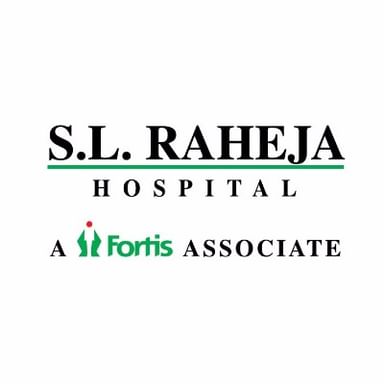
S L Raheja Fortis Hospital (On Call)
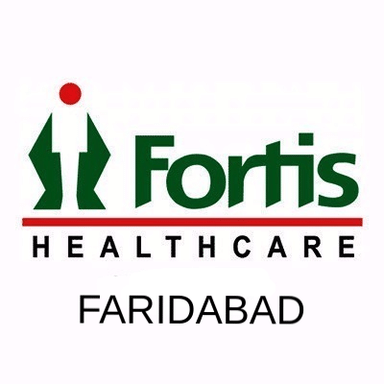
Fortis Escorts Hospital - Faridabad
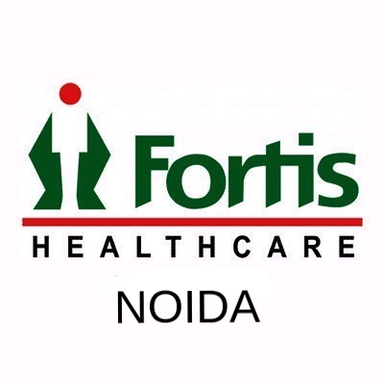
Fortis Hospital - Noida
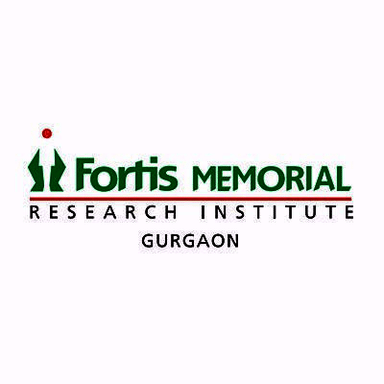
Fortis Memorial Research Institute - Gurgaon
Patient Review Highlights
Very helpful
7 reviewsThorough
1 reviewsknowledgeable
3 reviewsWell-reasoned
2 reviewsProfessional
1 reviewsSensible
1 reviewsPrompt
1 reviewsPractical
4 reviewsNurturing
3 reviewsCaring
1 reviewsFortis Flt. Lt. Rajan Dhall Hospital - Vasant Kunj (on call) Reviews
Rajni
Feb 10, 2021So good
Shiv Shankar Kumar
Nov 22, 2019good and friendly dr.very cooperative